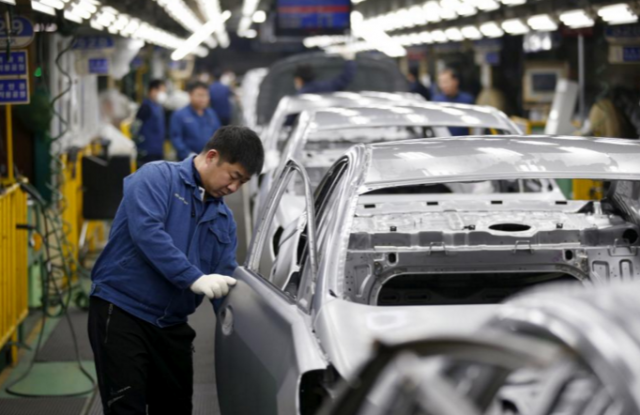
SEOUL – South Korea’s economy clocked its fastest growth in seven years last quarter, as global demand for the country’s electronics more than offset the impact of regional geopolitical strains on trade and boosted expectations for an imminent interest rate rise.
Gross domestic product rose 1.4 percent in the third quarter from the previous quarter, preliminary numbers from the Bank of Korea showed on Thursday, significantly beating the 0.8 percent forecast in a Reuters survey and marking the biggest jump since a 1.7 percent spike in the second-quarter of 2010. Year-on-year growth accelerated to 3.6 percent in the third quarter from 2.7 percent in the second quarter, also beating forecasts.
The stellar numbers show Asia’s fourth largest economy riding a surge in global demand for memory chips, which has cushioned the blow to tourism and retail from diplomatic tensions between China and South Korea over a US missile defense system. Wider concerns about North Korean military provocations have also hurt business sentiment.
The data has also prompted several analysts to bring forward forecasts for a central bank rate hike.
Kim Doo-un, an economist at Hana Financial Investment, now sees a 25 basis point hike in the bank’s next policy meeting in November.
“This kind of robust growth is surely a rate-hike ingredient,” Kim said. “Shipments out of semiconductors and IT sector in general have been good, and it also seems exports of services also improved in the third quarter.”
The data pushed the won =KRW to an eight-week high on Thursday, closing up 0.3 percent a 1,124.6 to the dollar on the heightened rate hike expectations.
The BOK kept its policy rate unchanged at the record low of 1.25 percent last week but one dissenting policymaker called for a hike, prompting some speculation that a tightening could take place at the central bank’s next policy meeting on Nov. 30.
The third quarter numbers are likely to bolster this view with growth now on track to hit the central bank’s official forecast of a 3 percent expansion.
“Even if the economy contracts on-quarter, say by about 0.54 percent in the fourth quarter, we can achieve 3 percent expansion this year,” Chung Kyu-il, director general for the Economics Statistics Department at the BOK said on the sidelines of a briefing in Seoul.
The central bank said last week that a row with China over Seoul’s deployment of a U.S. anti-missile system could knock off 0.4 percentage points off the nation’s economic growth this year.
China believes the missile defense system can be used to look inside its territory. An unofficial Chinese boycott against South Korean consumer products and tourism has hurt some segments of Korea’s economy though shipments of other products such as memory chips remain very strong.
Exports grew 6.1 percent in the third quarter after declining 2.9 percent a quarter earlier, while private consumption growth slowed to 0.7 percent in the July-September period from 1.0 percent.
Exports, which account for about 40 percent of GDP, notched a ninth consecutive month of double-digit growth in September in value terms, the longest stretch of such expansion since 2001.
“It has been the semiconductors that mainly boosted production from manufacturing sector, but the third quarter also saw some extra boost from overseas sales of cars and petrochemical products,” Chung said in a briefing.
South Korean chipmakers are enjoying a boom with overseas sales of memory chips posting record monthly sales of $9.69 billion in September.
While soaring global demand for Korean memory chips is boosting growth, exports of services, which include tourism, contracted 7.4 percent on-year, after shrinking 13.6 percent three months earlier.
The drop reflects a halving in the number of Chinese tourists in the year to September, which has hurt retailers and hotels in South Korea.



